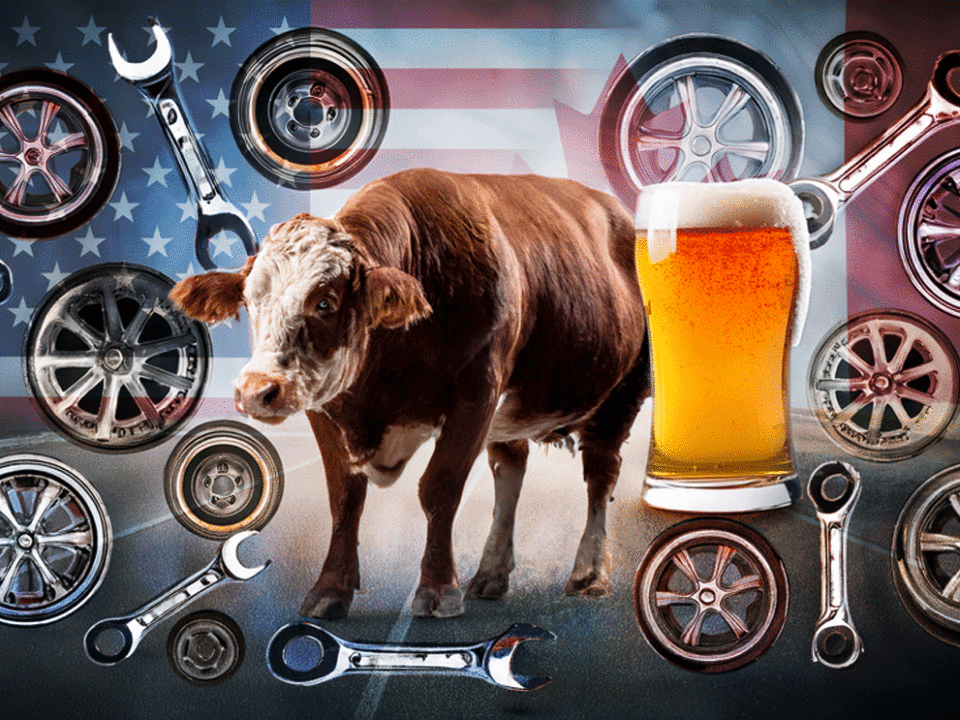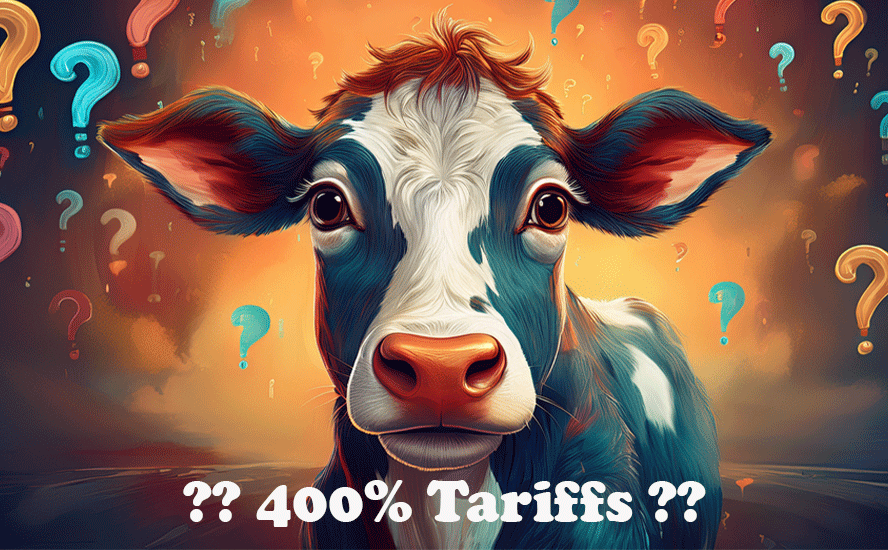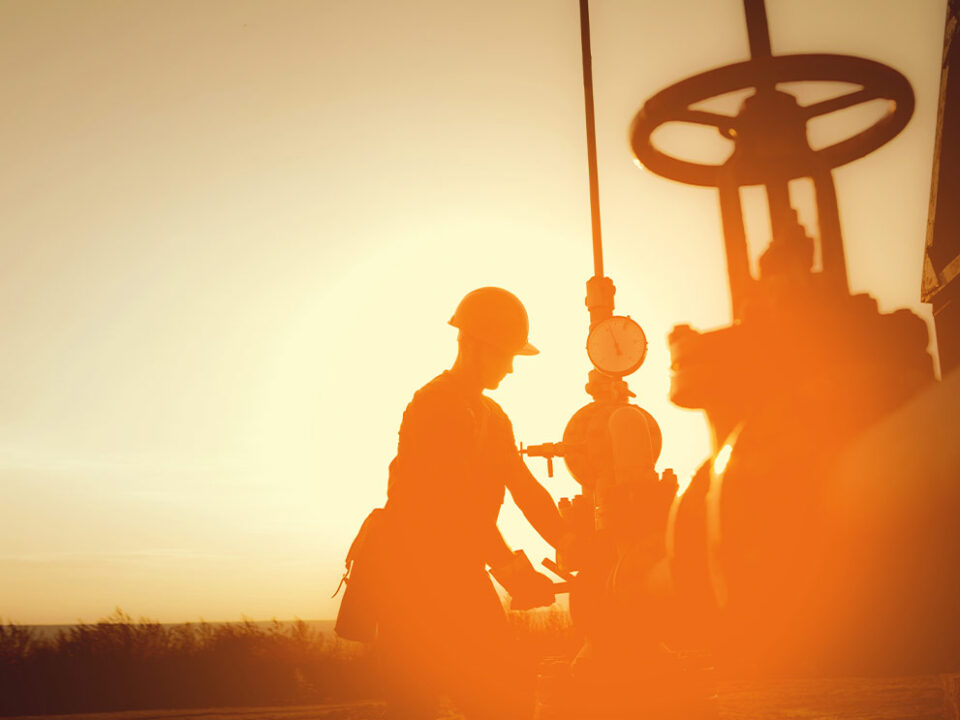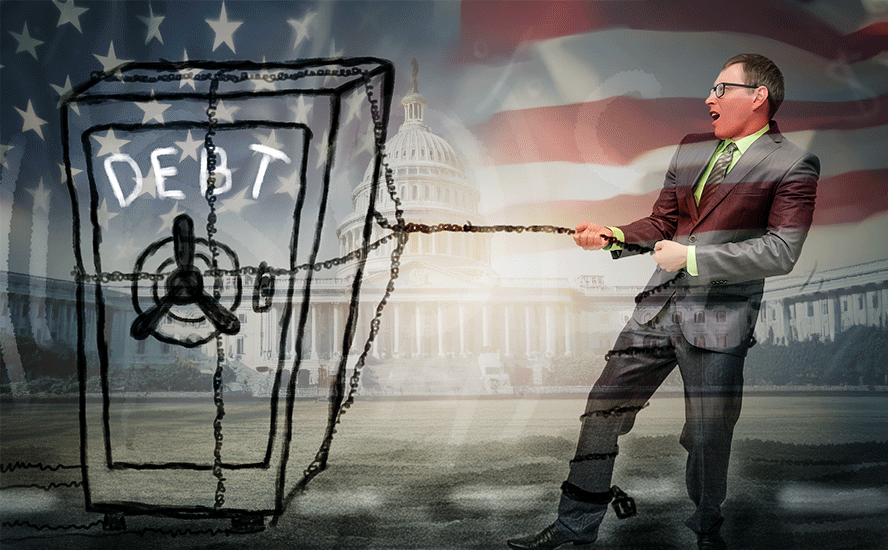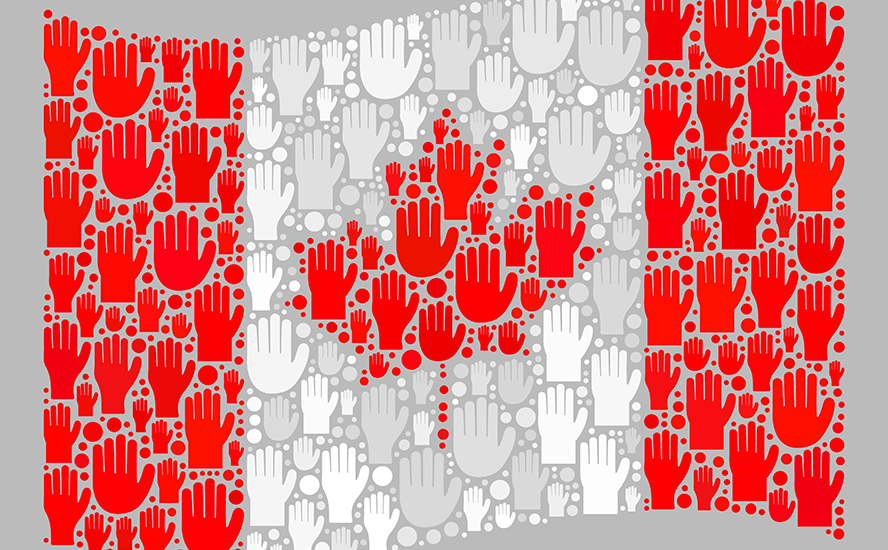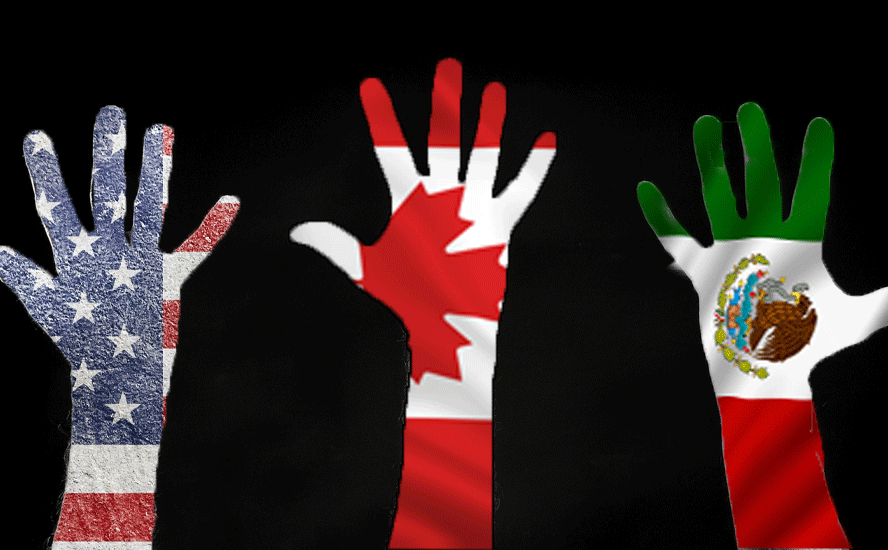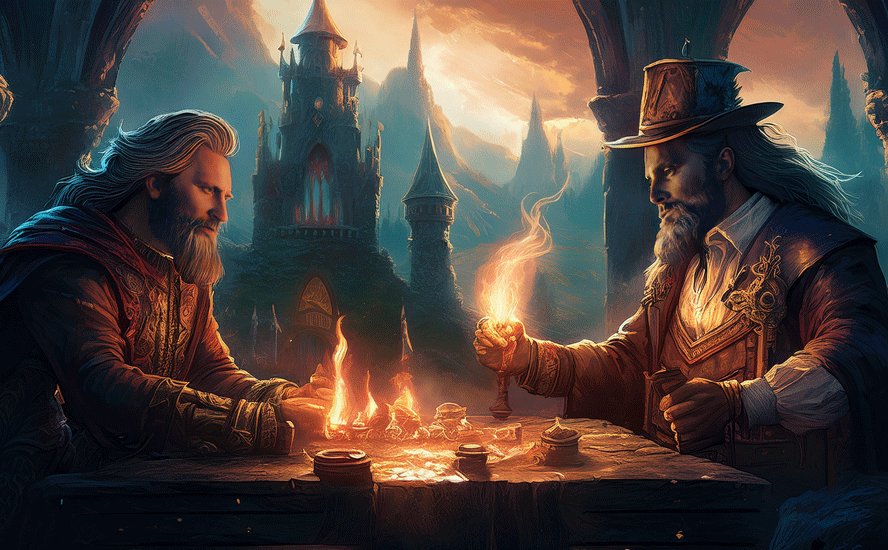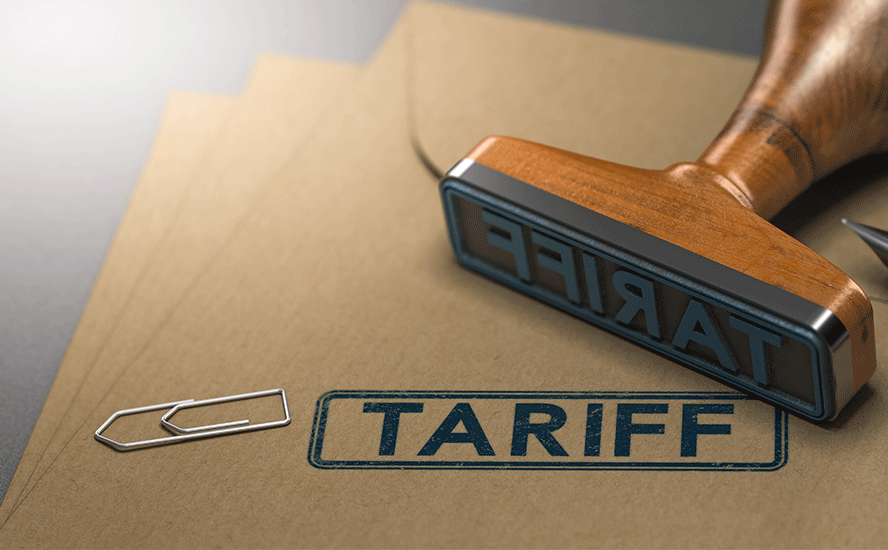The chill of autumn – Richard Mills
2023.01.21
A democracy is a political system in which all members have an equal share of power. Opposite to monarchy (“rule of one”), democracy from the Greek word “demokratia”, means government by the people, or the rule of the majority. In practice this has come to mean that power is held by elected representatives.
The concept is believed to have origins in Athens, Greece, around 500 BC, although other democratic systems of government may have existed elsewhere, previously, on a smaller scale.
The noble Solon laid the foundation for democracy by introducing a constitution based on property ownership. Athenians were dived into four classes with political power distributed among them. The highest offices went to those whose land produced 730 bushels of grain, while the lowest class comprised laborers who could not hold office, but who could vote in the assembly. (History Extra).

More details of this early form of democratic government, can be found on this McGill University page. Athenian democracy was based on selection of officials by lot, with an all-male assembly making decisions by majority rule. There were few checks on the assembly’s power, apart from it being illegal to pass a law that was contrary to another.
According to McGill’s History of Democracy, one of the reasons this system was feasible was due to the relatively small population of Athens — about 300,000. Also, there were a number of restrictions on who was allowed to participate in the assembly. Citizenship rights were limited to adult male Athenians, which left out the majority of the city’s population, including women, slaves and foreigners.
Democracy is the most popular form of government, with 98 of 165 nations identified as democracies in a 2020 study. However, Since the 2010s, the world has grown more authoritarian, with one quarter of the world’s population under democratically backsliding hybrid regimes into the 2020s. (Wikipedia)

What is it that makes democracies “backslide” into authoritarianism? Here we look at five reasons why democracies fail.
1. Autocrats. It used to be that democracies were subverted by violent overthrows, such as a coup d’etat led by a military general. Nowadays, democracy is corrupted by more indirect means. According to the book ‘This is How Democracies Fail’ by Steven Livitsky and Daniel Ziblatt, since the end of the Cold War, most democratic breakdowns have been caused not by generals and soldiers but by governments themselves. Like Hugo Chávez in Venezuela, elected leaders have subverted democratic institutions in Georgia, Hungary, Nicaragua, Peru, the Philippines, Poland, Russia, Sri Lanka, Turkey and Ukraine.
Of course we need to add the United States to this list, following the Jan. 6, 2021 insurrection. The House Jan. 6 committee’s final report asserted that Donald Trump engaged in a conspiracy to overturn the lawful results of the 2020 presidential election and failed to stop his supporters from attacking the US Capitol.
Autocrats often come to power as populists, like Trump in the US and Jair Bolsonaro, the former president of Brazil, then work from within the system to bend government institutions to their will. For example Trump’s stacking of the US Supreme Court with right-wing nominees.
Other autocrats try to buy off the media, or bully news organizations into self-censorship. Rodrigo Duterte, the former president of the Philippines, was upfront in his contempt for journalists, going after independent news site Rappler.com. Time Magazine named Rappler co-founder Maria Ressa ‘Person of the Year’ for the site’s tough reporting on Duterte’s brutal war on drugs. His attack on the media was documented in 2020 by Frontline Dispatch.
According to Livitsky and Ziblatt, An essential test for democracies is not whether such figures emerge but whether political leaders, and especially political parties, work to prevent them from gaining power in the first place – by keeping them off mainstream party tickets, refusing to endorse or align with them and, when necessary, making common cause with rivals in support of democratic candidates.
By this measure, the United States has clearly failed, in 2016 electing a president with weak allegiance to democratic norms. Also, the Republican Party could not prevent Trump, who many inside the party viewed as an extremist demagogue, from gaining the nomination.
2. Loss of public support. Faith in democracy hinges on voters having confidence that those they elect, are legitimate. Author Anne Applebaum, who wrote ‘Twilight of Democracy: The Seductive Lure of Authoritarianism’, believes democracies often fail “because someone is elected to power who doesn’t respect the rules of the democracy.”
One of the most common ways autocrats chip away at democracy is to propagate conspiracy theories surrounding those in power. One that had enormous impact was the birther conspiracy, that former President Obama was not born in the United States. Applebaum speculates that this belief, shared by more than a third of Americans, greatly damaged their trust in government.
“If you think the President is fake and that he’s not legitimate, then you believe that we’re ruled illegitimately,” she told CBC Radio. “If you are willing to believe that, then you’re also willing to doubt whether the American bureaucracy is run by patriots, whether the FBI and the CIA are legitimate, whether American foreign policy is legitimate and whether all kinds of other things follow other, deeper levels of distrust.”
Other autocrats have used conspiracies to weaken democratic institutions. They include Hungary’s Viktor Orban, who used the spectre of George Soros, a liberal Jewish Hungarian billionaire, to scare Hungarians about a refugee invasion; and the Polish far-right party, which used the death of former president Lech Kaczyński in a 2010 plane crash to accuse the centrist government of a massive coverup.
The threat to democracy doesn’t always come from the right of center. As Applebaum points out, a critical feature of democracies is freedom of speech, which is becoming less and less free amid “cancel culture”.
“There is now a sense in many places that there are strict and increasingly arbitrary rules about what you are and aren’t allowed to say, and subjects that were possible to bring up and debate even a couple of years ago are somehow off the table,” said Appelbaum, who signed a letter published by Harper’s Magazine, that denounced online shaming as an afront to free speech. “There’s a culture of creating rules about what is and isn’t allowed to be talked to about.”
The letter gained 153 signatories including left-wing intellectual Noam Chomsky, authors J.K. Rowling and Margaret Atwood.
Voters in several developed countries are turning away from political correctness, and are turfing out “woke” politicians in favor of common-sense views that are more in line with the middle class.
3. Tribalism/ Extreme polarization. Perhaps surprisingly, Applebaum said she believes the fall of democracy is inevitable in every society.
“Democracy in some ways is a very illogical political system,” she said on Canadian public radio. “When you win an election, you have to preserve the institutions that would make it possible for your political enemies to win next time. If you think about it, that’s almost antithetical to human nature.”
Livitsky and Ziblatt, who wrote ‘How Democracies Fail’, say there are two basic norms that have preserved America’s checks and balances, and underpinned American democracy for most of the 20th century: mutual toleration of competing parties; and forbearance, meaning that politicians should exercise restraint.
Today both of these norms, what the authors call the guardrails of American democracy, are weakening, and the weaking is rooted in extreme partisan polarization, that extends beyond policy differences into an existential conflict over race and culture. (The Guardian)
MarketWatch quotes political scientists Christopher Achens and Larry Bartels, who wrote ‘Democracy for Realists’, as saying that, contrary to the view that voters carefully assess policies on trade, immigration, health care, etc., and that the combined wisdom of an informed electorate will prudently steer the government, the reality is that voters still choose parties and candidates based on social identities.
The trick to winning elections consistently is to build a big tribe and then persuade enough of the 15 million swing voters with expensive data analystics.
Intelligencer Magazine asks, ‘Can Democracy Survive Tribalism’? The article points out that even in successful democracies, tribal differences can still threaten a nation-state. Examples include Scots, Catalans and Quebeckers. Over the past couple of decades in America, writes Andrew Sullivan, the enduring, complicated divides of ideology, geography, party, class, religion, and race have mutated into something deeper, simpler to map, and therefore much more ominous. I don’t just mean the rise of political polarization (although that’s how it often expresses itself), nor the rise of political violence (the domestic terrorism of the late 1960s and ’70s was far worse), nor even this country’s ancient black-white racial conflict (though its potency endures).
I mean a new and compounding combination of all these differences into two coherent tribes, eerily balanced in political power, fighting not just to advance their own side but to provoke, condemn, and defeat the other.
I mean two tribes whose mutual incomprehension and loathing can drown out their love of country, each of whom scans current events almost entirely to see if they advance not so much their country’s interests but their own. I mean two tribes where one contains most racial minorities and the other is disproportionately white; where one tribe lives on the coasts and in the cities and the other is scattered across a rural and exurban expanse; where one tribe holds on to traditional faith and the other is increasingly contemptuous of religion altogether; where one is viscerally nationalist and the other’s outlook is increasingly global; where each dominates a major political party; and, most dangerously, where both are growing in intensity as they move further apart.
4. Inequality. So far we haven’t said much about the economic reasons for the failure of democracy. In American politics, and elsewhere, there is a growing divide between the concerns of politicians and regular folks.
Lance Gore, a senior research fellow, East Asian Institute, University of Singapore, writes that, under the conditions of globalization, the transnational flow of capital separates the interests of capital from those of its home country’s working population. The rich-poor divide is widening all the time, so much so that the two sides have become two different worlds…
Election campaigns require substantial funding, which allows politicians to be hijacked by capital to varying extents, such that they overlook or misrepresent what the electorate wants. The voters gradually realise that the government they elected does not seem to represent them. It’s no longer “one man, one vote”, but “one dollar, one vote”. That is a major reason behind the decline of democracy and the rise of populism…
Secondly, there are more and more livelihood-related issues that electoral democracy cannot resolve, including the big ones like income distribution, climate change, war and peace, terrorism, medical and social insurance, infrastructure building etc., as well as smaller ones like gun control, maternity leaves, poverty alleviation, and pharmaceutical monopolies.
Electoral democracy misapplies economic market theory, assuming that competition of the every-man-for-himself kind will naturally lead to the maximisation of social benefits, fairness and justice. What’s really happening is that when people jostle for gains for themselves, their respective groups, classes, races, religions etc. legally and feel fully justified in doing so, the common good is neglected.
A new Credit Suisse report finds nearly half of global household wealth (47%) is in the hands of just 1.2% of the world’s population. The infographic below shows these 62.5 million individuals control a staggering $221.7 trillion.
At the bottom of the pyramid, 2.8 billion people, or 53.2% of the world’s population, share a combined wealth of $5 trillion, an amount representing only 1.1% of the global wealth total.
How’s that for the rich getting richer?…

5. Outside influences. While autocrats dismantling democratic institutions, a loss of public support, tribalism and inequality have all done their party in eroding democracy and moving several countries towards authoritarianism, we can’t forget the role of outsiders in influencing the political discourse, and even the outcome of elections.
The Russian government interfered in the 2016 US presidential election with the goals of harming the campaign of Hillary Clinton and boosting the candidacy of Donald Trump. The Russians also reportedly attempted to sway the results of the 2020 US presidential election. According to Wikipedia:
USIC analysis released by the Office of the Director of National Intelligence (DNI) in March 2021 found that proxies of Russian intelligence promoted and laundered misleading or unsubstantiated narratives about Joe Biden “to US media organizations, US officials, and prominent US individuals, including some close to former President Trump and his administration.
Of course, the United States has a long history of interfering in foreign elections to get the desired result. According to The Takeaway,
For decades, American intelligence agencies have historically used clandestine tactics to put leaders into office who are favorable to U.S. national interests. This practice of meddling dates back to the early days of the CIA and was seen as a necessary strategy to contain the Soviet Union during the Cold War.
It’s something Tim Weiner has explored in great detail. He’s won the Pulitzer Prize for his work on clandestine national security programs, and his books include ‘Enemies: A History of the FBI’ and ‘Legacy of Ashes: The Hisotry of the CIA.’ He says election meddling is not a grey area for the CIA.
“Several months after the CIA was created in 1947, it set out to steal the Italian election in 1948 to support the Christian Democrats who were pro-American, against the socialist Democrats, who were pro-Moscow, and they won,” says Weiner. “It’s just the beginning of a long, long story.”
After seeing success in Italy, the CIA took this formula — which involved using millions of dollars to run influence campaigns — and brought it across the world to places like Guatemala, Indonesia, South Vietnam, Afghanistan, and beyond.
“The president [of Afghanistan] after the American invasion post-9/11 was a paid CIA agent, Hamid Karzai,” Weiner says. “The list is very long, and it’s part of what the CIA does in political warfare.”
According to Weiner, the CIA doesn’t act independently to influence governments and electoral outcomes around the world, but it operates under the discretion of U.S. presidents.
“We set up the shah of Iran, who was our best friend for 25 years until he fell, and that created the Iranian Revolution, which we’re still living with today,” he says. “If you want to swing an election in a foreign country and you’ve got a Halliburton suitcase with a million dollars in it, it works.”
Jackboots
No term generates more confusion or misunderstanding than fascism; too many people believe that fascism exists solely in images on the History Channel – storm troopers pounding thundering jackboots down cobblestone streets of occupied countries while throwing up the Roman salute. But fascism is not defined by clothing, symbolism or salutes.
Fascism is a totalitarian system of government that bases its economy on capitalism, it’s a marriage of government authority and military/police power managed by corporate influence.
“The liberty of a democracy is not safe if the people tolerate the growth of private power to a point where it comes stronger than their democratic state itself. That, in its essence, is fascism – ownership of government by an individual, by a group.” Franklin D. Roosevelt
Consider the following, all are characteristics of fascism:
- A dictatorial ruling cabal runs the country
- The military is increasingly being used to control the civilian population
- The government repeatedly violates the U.S. Constitution
- Government informants are spying on their fellow citizens
- Controlled mass media
- Fraudulent elections
- Powerful and continuing nationalism, calls for national unity
- Militaristic values are spreading in society and the power of the military is increasing, glorification of war
- Obsession with national security
- Disdain for the recognition of human rights, racism
- Radical opposition to Communism/Socialism, Modernism and attacks on Liberals
- Identification of enemies as a unifying cause
- Corporate power is protected while labors power is suppressed – Fascism and capitalism are inseparable because the corporate power structure is authoritarian, and is geared to reward the elite owners, but not the workers. Few would argue against the fact that corporations control our government and have the dominant role in our society
- Obsession with crime and punishment
- Militarization of the police
- A trend toward corporatism and systematic destruction of the middle class
- Rampant cronyism and corruption
- Intertwining of government and religion
- A cult like leader
Consequences of fascism to the governed are the loss of rights and the enhancement of the elitists.
Creeping Fascism
“It is a mistake to think that early in a fascist shift you see the profile of barbed wire against the sky. In the early days, things look normal on the surface; peasants were celebrating harvest festivals in Calabria in 1922; people were shopping and going to the movies in Berlin in 1931. Early on, as WH Auden put it, the horror is always elsewhere – while someone is being tortured, children are skating, ships are sailing: “dogs go on with their doggy life … How everything turns away/ Quite leisurely from the disaster.”
As Americans turn away quite leisurely, keeping tuned to internet shopping and American Idol, the foundations of democracy are being fatally corroded. Something has changed profoundly that weakens us unprecedentedly: our democratic traditions, independent judiciary and free press do their work today in a context in which we are “at war” in a “long war” – a war without end, on a battlefield described as the globe, in a context that gives the president – without US citizens realising it yet – the power over US citizens of freedom or long solitary incarceration, on his say-so alone.” Naomi Wolf, Fascist America in 10 Easy Steps, guardian.co.uk
Fascism is dangerous because its insidious, it is a natural degenerative process of a capitalistic society caused by the revolving door between government and the most powerful global corporations. Large multi-national corporations, through campaign finance and intense lobbying, come to dominant the legislative and political process.
“Fascism in America won’t come with jackboots, book burnings, mass rallies, and fevered harangues, nor will it come with black helicopters or tanks on the street. It won’t come like a storm but as a break in the weather, that sudden change of season you might feel when the wind shifts on an October evening: Everything is the same, but everything has changed. Something has gone, departed from the world, and a new reality will have taken its place.
All the old forms will still be there: legislatures, elections, campaigns plenty of bread and circuses. But consent of the governed will no longer apply; actual control of the state will have passed to a small and privileged group who rule for the benefit of their wealthy peers and corporate patrons.
To be sure, there will be factional conflicts among the elite, and a degree of debate will be permitted; but no one outside the privileged circle will be allowed to influence state policy. Dissidents will be marginalized usually by the people themselves. Deprived of historical knowledge by a thoroughly impoverished educational system designed to produce complacent consumers, left ignorant of current events by a corporate media devoted solely to profit, many will internalize the force-fed values of the ruling elite, and act accordingly. There will be little need for overt methods of control.
The rulers will act in secret, for reasons of national security, and the people will not be permitted to know what goes on in their name. Actions once unthinkable will be accepted as routine: government by executive fiat, state murder of enemies selected by the leader, undeclared wars, torture, mass detentions without charge, the looting of the national treasury, the creation of huge new security structures targeted at the populace. In time, this will be seen as normal, as the chill of autumn feels normal when summer is gone. It will all seem normal.” Chris Floyd, November 10, 2001 Moscow Times
Richard (Rick) Mills
aheadoftheherd.com
subscribe to my free newsletter
Legal Notice / Disclaimer
Ahead of the Herd newsletter, aheadoftheherd.com, hereafter known as AOTH.
Please read the entire Disclaimer carefully before you use this website or read the newsletter. If you do not agree to all the AOTH/Richard Mills Disclaimer, do not access/read this website/newsletter/article, or any of its pages. By reading/using this AOTH/Richard Mills website/newsletter/article, and whether you actually read this Disclaimer, you are deemed to have accepted it.
Any AOTH/Richard Mills document is not, and should not be, construed as an offer to sell or the solicitation of an offer to purchase or subscribe for any investment.
AOTH/Richard Mills has based this document on information obtained from sources he believes to be reliable, but which has not been independently verified.
AOTH/Richard Mills makes no guarantee, representation or warranty and accepts no responsibility or liability as to its accuracy or completeness.
Expressions of opinion are those of AOTH/Richard Mills only and are subject to change without notice.
AOTH/Richard Mills assumes no warranty, liability or guarantee for the current relevance, correctness or completeness of any information provided within this Report and will not be held liable for the consequence of reliance upon any opinion or statement contained herein or any omission.
Furthermore, AOTH/Richard Mills assumes no liability for any direct or indirect loss or damage for lost profit, which you may incur as a result of the use and existence of the information provided within this AOTH/Richard Mills Report.
You agree that by reading AOTH/Richard Mills articles, you are acting at your OWN RISK. In no event should AOTH/Richard Mills liable for any direct or indirect trading losses caused by any information contained in AOTH/Richard Mills articles. Information in AOTH/Richard Mills articles is not an offer to sell or a solicitation of an offer to buy any security. AOTH/Richard Mills is not suggesting the transacting of any financial instruments.
Our publications are not a recommendation to buy or sell a security – no information posted on this site is to be considered investment advice or a recommendation to do anything involving finance or money aside from performing your own due diligence and consulting with your personal registered broker/financial advisor.
AOTH/Richard Mills recommends that before investing in any securities, you consult with a professional financial planner or advisor, and that you should conduct a complete and independent investigation before investing in any security after prudent consideration of all pertinent risks. Ahead of the Herd is not a registered broker, dealer, analyst, or advisor. We hold no investment licenses and may not sell, offer to sell, or offer to buy any security.
Legal Notice / Disclaimer
Ahead of the Herd newsletter, aheadoftheherd.com, hereafter known as AOTH.Please read the entire Disclaimer carefully before you use this website or read the newsletter. If you do not agree to all the AOTH/Richard Mills Disclaimer, do not access/read this website/newsletter/article, or any of its pages. By reading/using this AOTH/Richard Mills website/newsletter/article, and whether you actually read this Disclaimer, you are deemed to have accepted it.


